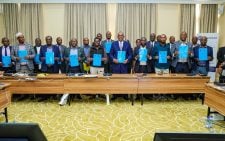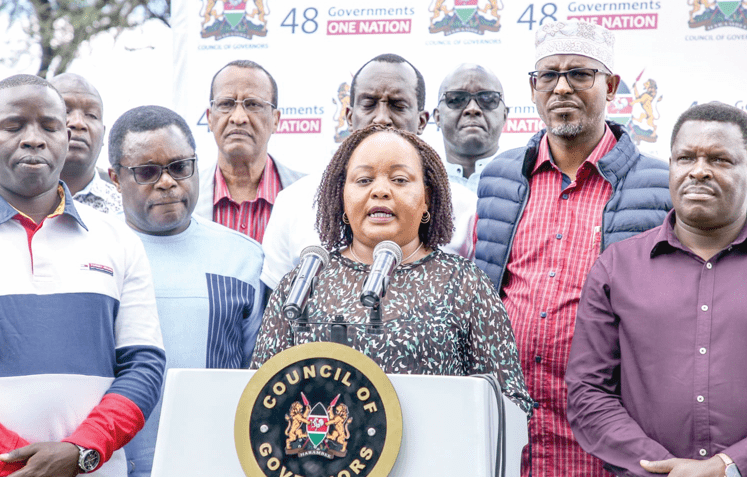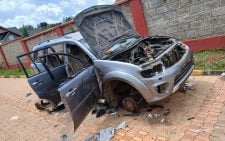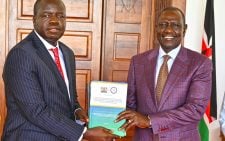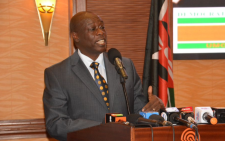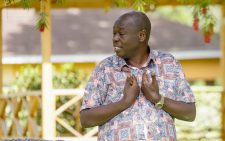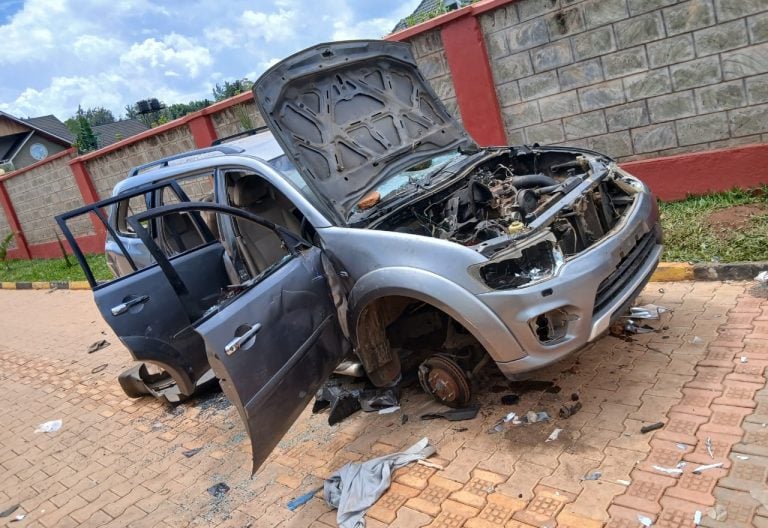High alert as Kenya reports Omicron case
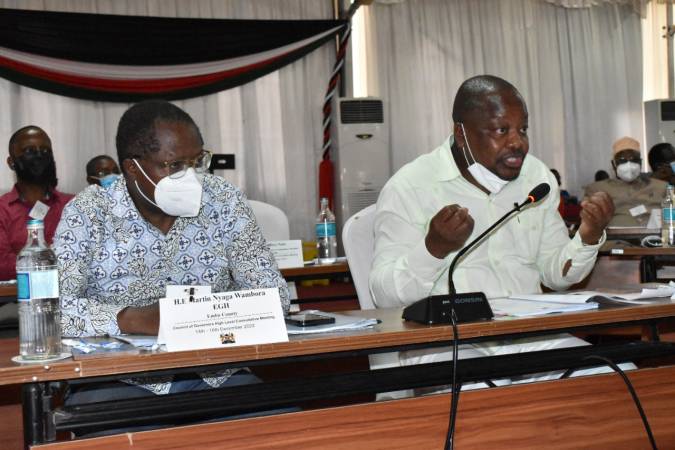
Kenya yesterday reported its first three cases of the Omicron variant of Coronavirus, sending health authorities into heightened alert.
Speaking in Mombasa, Health Cabinet Secretary Mutahi Kagwe confirmed the cases had been detected in three travellers, who arrived in the country, hours after the World Health Organisation (WHO) warned new waves of the strain could be building up.
“I can confirm we have detected the Omicron variant among some of the travellers who have been passing through Kenya,” the CS said on the sidelines of a high-level meeting with the Council of Governors on the Universal Health Coverage (UHC) agenda.
Fast-spreading nature
Kagwe said the three cases were detected on persons who had travelled into the country from South Africa. They included two Kenyans and a South African.
“Due to its fast-spreading nature, however, we are urging Kenyans to adhere to health protocols and avoid crowded areas,” Kagwe said.
He said the three cases were detected during a routine genome sequencing of samples collected at the Jomo Kenyatta International Airport (JKIA). He said the three were immediately taken into quarantine.
More samples were being analysed and a detailed report on the actual position of the variant’s spread in the country will be issued in two days’ time, Kagwe said.
“As you know, we started the process of ensuring that persons arriving in the country especially from the South African countries are actually tested,” he stated and revealed that virologists have been sequencing some of the samples collected.
While noting that there is evidence that the variant could be highly transmissible based on the observation of its behaviour in other countries, Kagwe allayed fears over its severity.
“So far, what we have seen and heard from our colleagues in South Africa, and elsewhere in the world is that the level of hospitalisation in Omicron is less than the Delta variant. “So far, the hospitalisation cases that we have in our country are those caused by the Delta variant. We have not detected any Omicron case in our hospitals,” he said.
According to Kagwe, there is evidence that the new variant has a much lower level of attack on fully vaccinated people. He, therefore, encouraged non-vaccinated Kenyans to take the jab to minimise infection risks.
“If you are not vaccinated you are likely to get sick faster than if you are vaccinated. You are going to get hospitalised, spend money that you do not necessarily need to spend, you will impoverish yourself with huge bills that you don’t need to incur,” Kagwe advised.
The Omicron variant was first detected in South Africa in November, forcing the Western world to impose border controls, a move that was heavily criticised by African governments.
There has been widespread concern among Kenyans of possible punitive restrictions since the variant emerged in South Africa and recently in neighbouring Uganda.
Kagwe, however, ruled out the possibility of the government enforcing a lockdown in the country, citing advise from health experts.
“Epidemiologists have said a lockdown is not the way to go,” he said even as Kenyans complained of a new strain of common flu characterised by severe headache, fever, running nose and sore throat.
“We are happy that the handling of the variant is now being managed in a better way. For instance, some countries have lifted the bans and red lists that they had placed on other countries reporting the variant and that is a good plan,” he added.
Another peak
The CS urged governors to prepare isolation facilities in their counties.
He revealed that Kenya is currently engaging South Africa and countries where the variant had been detected to find out how to effectively deal with it.
But experts are warning that the country could experience another peak either in the middle or late January due to the expected mass movement of people from urban centres to rural areas during the festive season.
There are fears that thousands of the urbanites, who are mostly vaccinated, could transfer the virus to the majority unvaccinated rural communities during the Christmas and New Year festivities.
Yesterday, Rwanda announced that it had detected six cases of the variant as the government urged its people to get vaccinated. “All arriving passengers must quarantine for three days at a designated hotel at their own cost,” the government announced while imposing a new set of measures including a ban on night club operations and live band entertainment.
On Tuesday, WHO announced that there was an 83 per cent surge in new Covid-19 cases during the past week in Africa, driven by the Delta and the Omicron variants. It, however, stated that the surge was causing fewer deaths than previous outbreaks.
“We are cautiously optimistic that deaths and severe illness will remain low in the current wave, but slow vaccine rollout in Africa means both will be much higher than they should be,” said Dr Matshidiso Moeti, WHO regional director for Africa.
In an updated forecast from the pandemic assessment, WHO warns that the continent may not reach 70 per cent vaccine coverage until August 2024.
